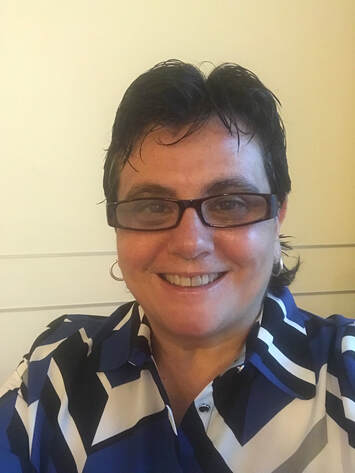
Prof. Thais Russomano MD MSc PhD FRSA graduated in medicine from the Federal University of Pelotas, Brazil (1985), working in internal & emergency medicine until 2005. She has an MSc in Aerospace Medicine - Wright State University, USA (1991) and PhD in Space Physiology - King's College London (1998). For 3 years she was a Space Scientist at the Institute of Aerospace Medicine, German Aerospace Centre (DLR) in Cologne, Germany, before founding/coordinating the Microgravity Centre, PUCRS, Brazil, for 18 years.
Thais has been linked to King's College London in different academic positions since 1994, having acted at CHAPS, Faculty of Life Sciences & Medicine, King’s College London, as Deputy Course Director/Senior Lecturer of the Space Physiology & Health MSc degree course (2009-2020). She is currently academically linked to: Unyleya & UFCSPA, Brazil; the Innovation and eHealth Center, Space Medicine Group, Carol Davila University of Medicine & Pharmacy, Romania; Center for Aerospace Medicine Studies, Faculty of Medicine, University of Lisbon, Portugal; and the EIIS MSc in Space Entrepreneurship, Italy. She is Co-founder/CEO/Scientific Director of InnovaSpace Ltd, UK.
Thais has 30+ years of experience teaching and researching in Aerospace Medicine, Space Physiology, Aerospace Biomedical Engineering and TeleHealth & Digital Health, including participation in 400+ scientific events with 500+ scientific papers and lectures presented. She has authored books, chapters and numerous papers. Thais is a Fellow of the Royal Society of Arts, a member of the Moon Village Association (Lunar Human Physiology and Biology Working Group), an Elected Academician of the International Academy of Aviation and Space Medicine, and International Academy of Astronautics, for which she serves on the Board of Trustees (2019-2025) and IAA Committees (2012-2025). She is also a member of international associations/societies in space, aviation and telehealth (ISfTeH), Board Member of companies and organisations (ACESworldwide), reviewer for journals, and holds many patents related to Space Life Sciences. Thais was a voluntary Mentor for Space4Women, a United Nations Office for Outer Space Affairs (UNOOSA, 2020-2021) initiative. She participated in ESA parabolic flight campaigns (2000 & 2006), is a member of ESA Topical Teams and participates in NASA funded projects. In 2021, through InnovaSpace and in partnership with a pharmaceutical company, she participated in research at the ISS (Kibo module). Thais acts as an educator, researcher and consultant in projects of ESA, NASA, DLR, PT-Space, AEB-Brazil, InnovateUK, BlueAbyss, Optmal Cities UK, International Space University, and Program Oportunidades, El Salvador.
Thais has been linked to King's College London in different academic positions since 1994, having acted at CHAPS, Faculty of Life Sciences & Medicine, King’s College London, as Deputy Course Director/Senior Lecturer of the Space Physiology & Health MSc degree course (2009-2020). She is currently academically linked to: Unyleya & UFCSPA, Brazil; the Innovation and eHealth Center, Space Medicine Group, Carol Davila University of Medicine & Pharmacy, Romania; Center for Aerospace Medicine Studies, Faculty of Medicine, University of Lisbon, Portugal; and the EIIS MSc in Space Entrepreneurship, Italy. She is Co-founder/CEO/Scientific Director of InnovaSpace Ltd, UK.
Thais has 30+ years of experience teaching and researching in Aerospace Medicine, Space Physiology, Aerospace Biomedical Engineering and TeleHealth & Digital Health, including participation in 400+ scientific events with 500+ scientific papers and lectures presented. She has authored books, chapters and numerous papers. Thais is a Fellow of the Royal Society of Arts, a member of the Moon Village Association (Lunar Human Physiology and Biology Working Group), an Elected Academician of the International Academy of Aviation and Space Medicine, and International Academy of Astronautics, for which she serves on the Board of Trustees (2019-2025) and IAA Committees (2012-2025). She is also a member of international associations/societies in space, aviation and telehealth (ISfTeH), Board Member of companies and organisations (ACESworldwide), reviewer for journals, and holds many patents related to Space Life Sciences. Thais was a voluntary Mentor for Space4Women, a United Nations Office for Outer Space Affairs (UNOOSA, 2020-2021) initiative. She participated in ESA parabolic flight campaigns (2000 & 2006), is a member of ESA Topical Teams and participates in NASA funded projects. In 2021, through InnovaSpace and in partnership with a pharmaceutical company, she participated in research at the ISS (Kibo module). Thais acts as an educator, researcher and consultant in projects of ESA, NASA, DLR, PT-Space, AEB-Brazil, InnovateUK, BlueAbyss, Optmal Cities UK, International Space University, and Program Oportunidades, El Salvador.
InnovaSpace Ltd - Registered in England & Wales - No. 11323249
UK Office: 88 Tideslea Path, London, SE280LZ
Privacy Policy I Terms & Conditions
© 2024 InnovaSpace, All Rights Reserved
UK Office: 88 Tideslea Path, London, SE280LZ
Privacy Policy I Terms & Conditions
© 2024 InnovaSpace, All Rights Reserved